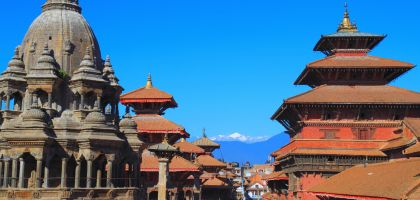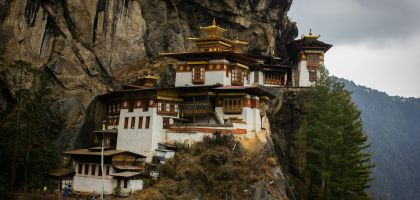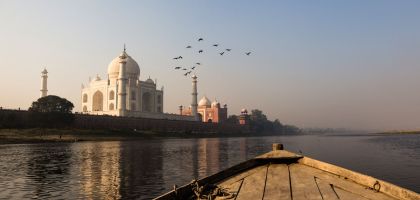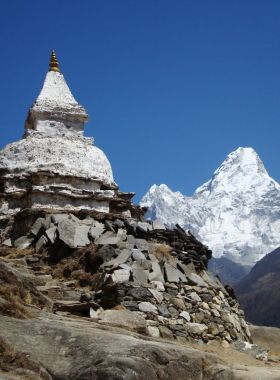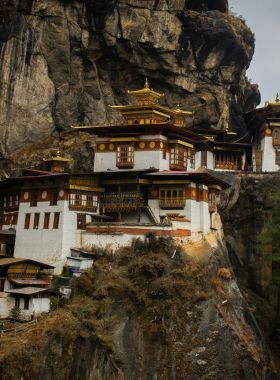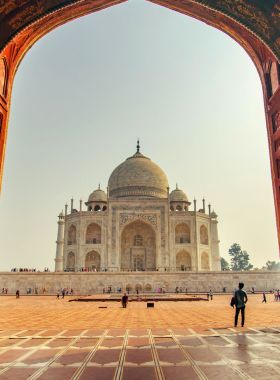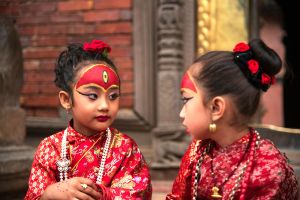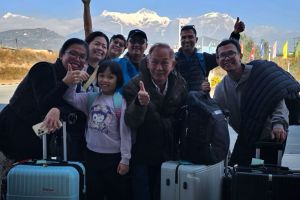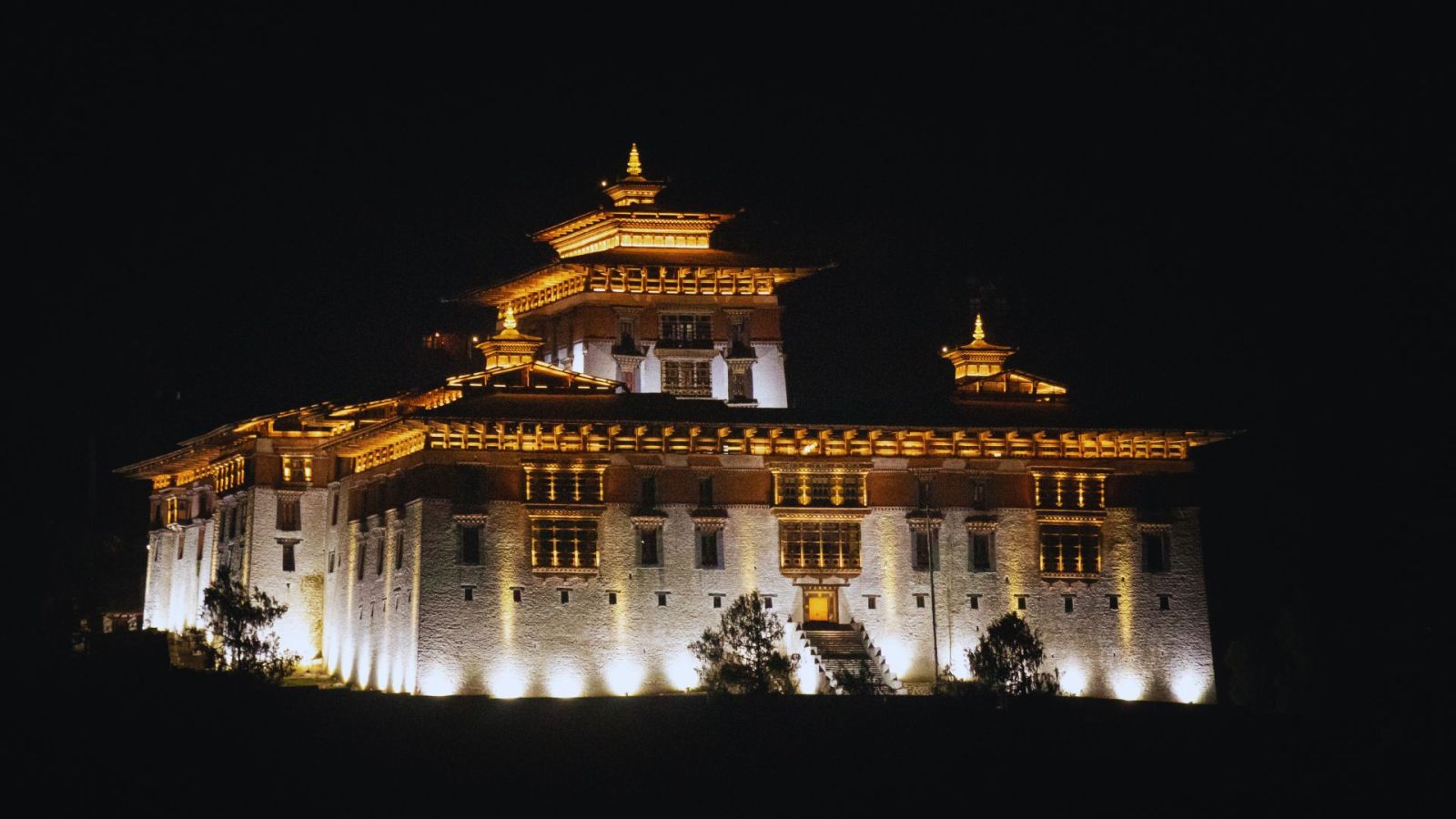Grace in the Hills of Bhutan. Women Only Bhutan Tour.
“A nation’s culture resides in the hearts and in the soul of its people.” –Mahatma Gandhi
The first morning in Bhutan, I stepped onto a quiet terrace at our Thimphu hotel, the city still wrapped in dawn mist and the distant hills brushed with soft sunlight. The air smelled faintly of pine and incense from nearby temples, and the low murmur of monks’ prayers floated across the valley. My two friends and I paused, taking it all in, feeling the gentle pulse of a city that balances tradition and serenity. This Women Only Bhutan Tour had begun, and from that first moment, I sensed it would be a journey not through mystical landscapes, and the lives and stories of the people who call this place home.
Our arrival in Thimphu was soft and surprising. The air carried a crispness that made the city feel open, almost intimate, despite its streets and buildings. We wandered into markets where textiles seemed to bustle with color and purpose. It was there I first met Dechen Wangdi, a young woman whose quiet energy radiated from her small cloud kitchen tucked among the narrow streets. She spoke of flavors with the same reverence I had once reserved for poems; her eyes lit up as she described meals she created for her neighborhood, and I felt an immediate kinship with her, an understanding of the care embedded in the work of one’s hands.
I had carried Bhutan in my mind for years, a place of mountains rising like guardians and monasteries that seemed to breathe. I imagined valleys where the air itself held stories, courtyards where voices and footsteps carried with ease. When I came across the Women Only Bhutan Tour, it felt close to what I had been waiting for, an opening into lives lived differently, a chance to be among women whose days carried grace, both tender and enduring.
I booked the tour with a quiet certainty, the kind that comes when something feels unavoidable. My friends, Sophie and Anne, had long known of my fascination with the Himalayas and agreed without hesitation. We imagined together the small joys of discovery, walking through monastery courtyards, hearing the low murmur of prayer wheels, and marveling at the unbelievable ornate buildings of this amazing country. Everything about this Women Only Bhutan Tour promised an experience lived slowly, deliberately, with attention to detail that honored the people behind each tradition.
Dechen greeted us with a soft, unassuming smile that seemed to light up the narrow alley where her cloud kitchen sat. She was stunning, probably in her 30s, with hair pulled back in a simple braid, and her hands carried the quiet grace of someone accustomed to careful, deliberate work. Her eyes sparkled with curiosity and warmth, betraying a passion for her craft that went far beyond mere cooking.
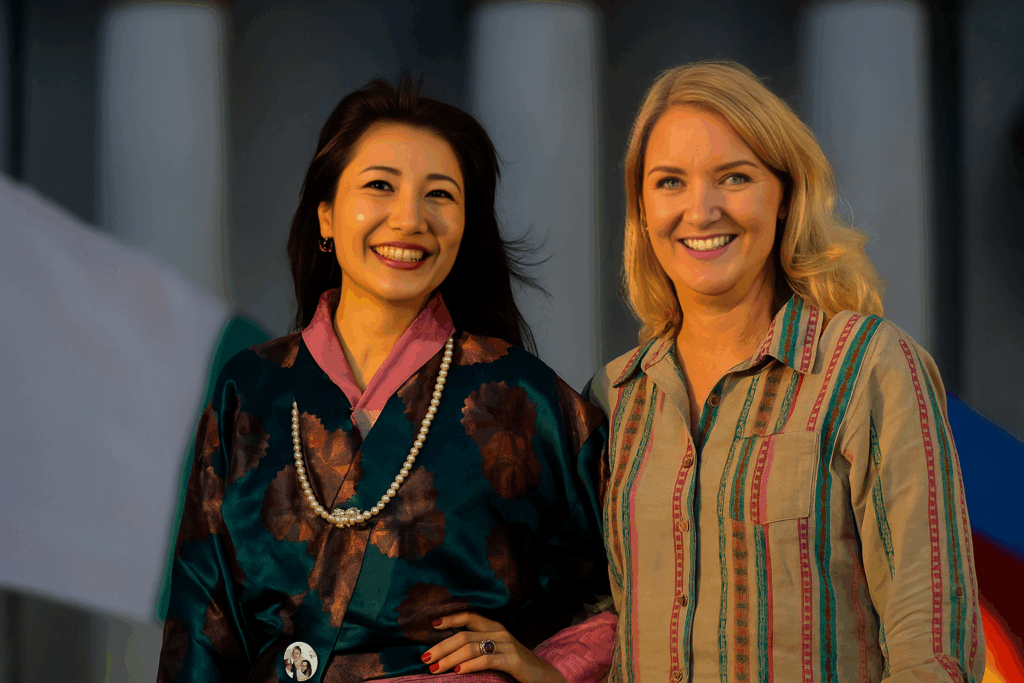
“Kuzu Zangpo,” she greeted us in the gentle cadence of her tradition, her voice soft yet confident. “When I cook, it is like telling a story. Each ingredient carries meaning, every flavor holds a memory.” Sophie and Anne exchanged impressed glances, and I leaned in, captivated by the care and intent in her words.
We sat on small stools around her modest kitchen, watching her move with fluid precision, chopping vegetables, stirring spices, and explaining the stories behind each dish. “This is ema datshi,” she said, pointing to the bubbling pot of chili and cheese stew. “It is the flavor of home, of family, of mornings when the world is quiet except for the laughter of children.” Her hands moved quickly, yet each gesture held a rhythm, a patience that made the act of cooking seem almost meditative.
I asked her how she came to start her own cloud kitchen. Dechen laughed softly, a sound that felt like sunlight slipping through clouds. “I wanted to share the flavors of my village with more people,” she said. “Cooking is a way to bring joy, and joy grows when shared.” Her words resonated with me in a way I hadn’t expected. Here was a woman whose life was centered on creating, nurturing, and connecting, qualities that seemed to mirror my own worldview.
After our morning with Dechen, we wandered through Thimphu’s quiet streets, the early light glinting off colorful prayer flags strung between buildings. We visited the National Textile Museum, where the looms teemed like a soft chorus of history, and I was struck by the intricate work of the women artisans. Each piece told a tale of dedication, patience, and a lineage of craft that seemed almost sacred. Sophie and Anne moved from display to display with delight, asking questions, taking notes, and occasionally pausing to simply absorb the details.
The rest of the tour was equally extraordinary. Our trek to Tiger’s Nest Monastery was a gentle challenge, winding through pine forests and past small chortens, the crisp air carrying the sounds of distant birds and the soft murmur of prayer wheels spun by pilgrims. Reaching the monastery perched high on the cliff, a rare stillness settled over me. In Punakha, we floated along the Mo Chu River on a rafting excursion, the rapids offering just the right spark of adventure, framed by verdant rice terraces, before setting out later on a gentle mountain biking route that brought a different kind of freedom. It was body in motion, heart open, moving through valleys that seemed untouched by time. We also visited Zilukha Nunnery, a serene sanctuary where the calm routines of the nuns offered insight into Bhutanese spiritual life and the vital role women play in these traditions. Evenings were for reflection, joining meditation sessions, watching butter lamps flicker in temple courtyards, and sharing meals prepared by local women, each moment revealing the care woven into every task and ritual. Through these experiences, I realized this Women Only Bhutan Tour was a journey into the heart of Bhutanese women’s lives and, in a way, into our own.
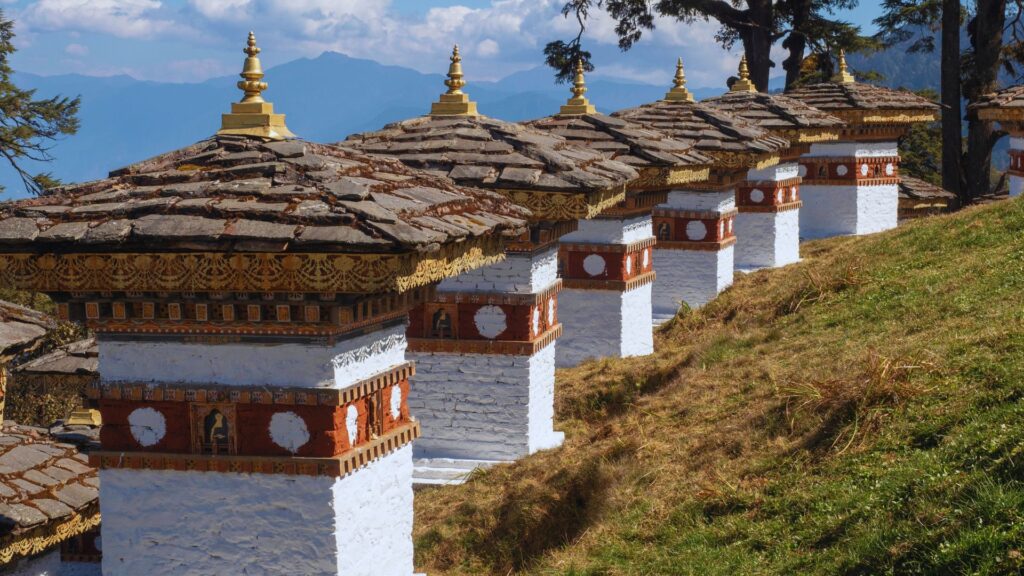
What lingered most in Bhutan was the quiet insistence of its people, the way their lives shaped the land as much as the land shaped them. Monasteries and fortresses (Dzongs) rose from the earth, yet they seemed to exist only to mirror the calm and attentiveness of those who tended them. I watched villagers moving through their days with care, offering smiles without effort, finding small pleasures that held their own weight. Even the children’s laughter, the flutter of prayer flags, the lighting of butter lamps, all seemed part of an invisible current, a way of living that demanded attention without clamor. In Bhutan, I realized, beauty was breathed into existence by the women and men who inhabited every village, every valley, every quiet path. And in witnessing them, one felt that serenity is really a craft, honed through patience, dignity, and the simple, persistent acts of living.
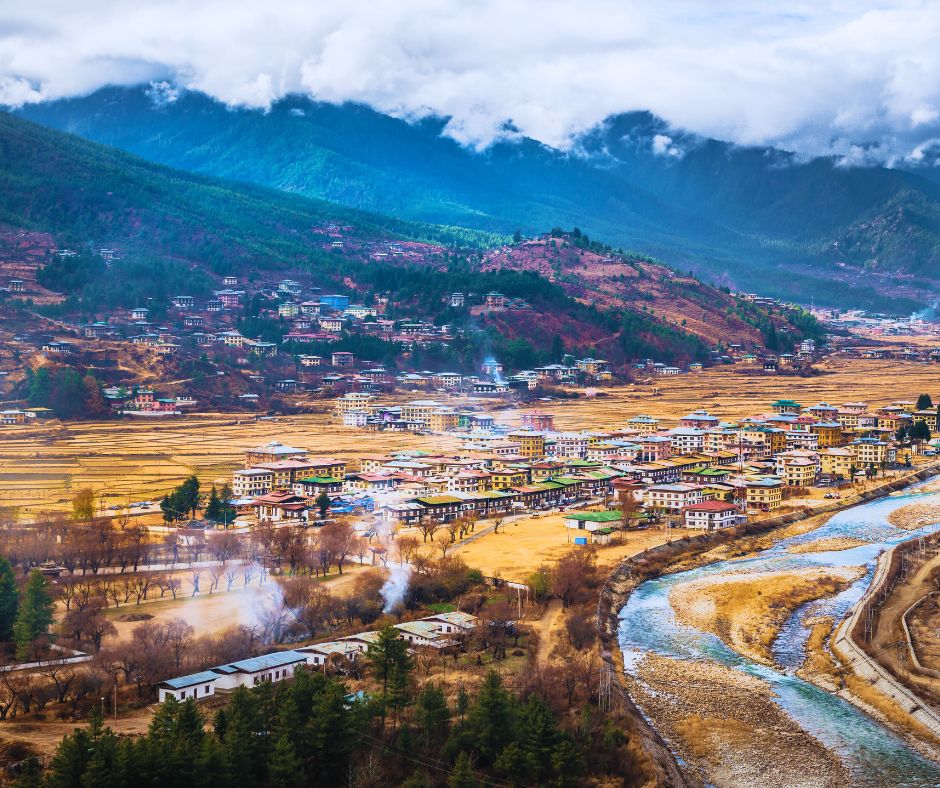
Even today, Dechen stays in my mind, for the grace she carried, effortless and luminous, like the morning mist that draped Thimphu’s hills. Our paths crossed by chance, yet in that serendipity, I felt the beat of Bhutan reveal itself. In her presence, I sensed the quiet dignity of women who shape their world with patience and care, whose lives embody the balance, generosity, and warmth that echo through every courtyard, every village path. Meeting her was like glimpsing the essence of Bhutan itself: a country where beauty is lived, not displayed, and where the spirit of its people colors every mountain, every river, and every fleeting, unforgettable moment.
